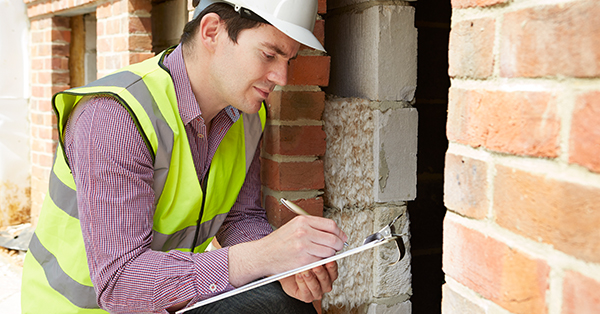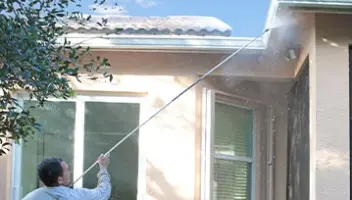What to Know About Home Inspections

If you’re looking to buy or sell a home in the near future, home inspections are likely on your mind. They’re crucial in making sure the transaction is fair for both parties, and can help inform the negotiation process. That’s why it’s imperative to know what to look for during a home inspection, and how to utilize the results to your advantage before you dive head first into a real estate transaction. LeafFilter is here with answers to all your questions about home inspections.
Question: Who’s responsible for ordering a home inspection?
Answer: No one is required to order a home inspection, unless it is a stipulation of the mortgage you wish to take out. However, for the majority of home buyers, inspections are an optional – albeit highly recommended – part of the home buying process.
That being said, home inspections must be ordered by the prospective buyer if they decide they’d like one. That means the home buyer is required to meet certain deadlines, and cover the cost of the professional inspection. These provisions protect the buyer from any potentially fraudulent inspections. As such, it’s important to keep the cost of a home inspection in mind when budgeting to buy a home.
Question: What do home inspections cover?
Answer: Inspections may vary depending on the unique features of the home you’re looking to purchase. For example, you wouldn’t need to have the basement inspected if there isn’t one to begin with. In general, according to the American Society of Home Inspectors (ASHI), inspections cover things like the “condition of the home’s heating system; central air conditioning system (temperature permitting); interior plumbing and electrical systems; the roof, attic and visible insulation; walls, ceilings, floors, windows and doors; the foundation, basement and structural components.”
You can also attend the inspection to see exactly what they’re looking at. This is a great time to ask questions, and address any concerns you’ve had about the property. When the inspection is completed, you can request a report to keep documentation of these results.
While inspectors try to address the most basic needs, they do have limits to their areas of expertise. You might want to think of the home inspector like you do your general practitioner. They’re great for a check-up, but you might want to see a specialist for deeper issues. Similarly, you may need to hire a special inspector to detect anything other than the aspects listed in ASHI’s guidelines above.
Question: What are the benefits of a home inspection?
Answer: Home inspections provide many benefits to the home buyer. Perhaps the biggest benefit is the leverage in the negotiation process. While home inspections are usually performed after a price has been agreed upon, the results of the inspection can open negotiations back up in the form of home contingencies.
With a contingency provision, the home buyer can choose to place stipulations on their purchase, where the seller may agree to cover the cost of essential repairs, deduct the cost from the buying price, or provide an alternative solution. The home buyer can then choose to agree to their conditions, come back with a counter offer, or walk away without penalty. This benefit alone is enough for the majority of home owners to jump at the opportunity.
However, there are other benefits as well. It’s good to remember that professional inspectors have a wealth of knowledge about many home features. If the buyer is present during the inspection, they may ask the home professional questions about the property that will help them maintain their home. It’s good to ask questions like:
- Where are the emergency shutoffs for gas, water, and electricity?
- How do I operate my water heater, thermostat, washer, etc.?
- How much will this repair actually cost?
- Do you have any contacts that specialize in this repair?
Aside from the ability to ask questions, an inspection also gives the buyer the knowledge they need in order to feel confident about their decision, whether or not they decide to purchase the home. This peace of mind is truly invaluable to many home buyers.
Question: What if I don’t get a home inspection?
Answer: After looking at tons of houses, and learning about different features they like and don’t like, many home buyers feel confident in their ability to detect any and all issues with a home. However, this is often a false assumption that can lead to a lot of headaches down the line. Think again of the general practitioner comparison. You may go you your doctor to request an antibiotic because you think you have an infection that’s causing a pesky cough that just won’t go away. However, when the doctor examines the issue, they may find serious problems that require more treatment than a simple antibiotic.
Similarly, you can mistake symptoms of a home disaster for a smaller issue, and fail to budget properly for necessary repairs. If a home buyer decides to forego the inspection process, not only will they deny themselves of all the benefits listed above, but they’re also risking major, unforeseen expenses in the future by not getting the big picture.
Have more home inspection questions?
If you have other questions about inspections, or the home buying process in general, we’d love to help! Connect with LeafFilter’s home experts on Facebook and Twitter to get answers to your biggest home buying and home selling questions!



